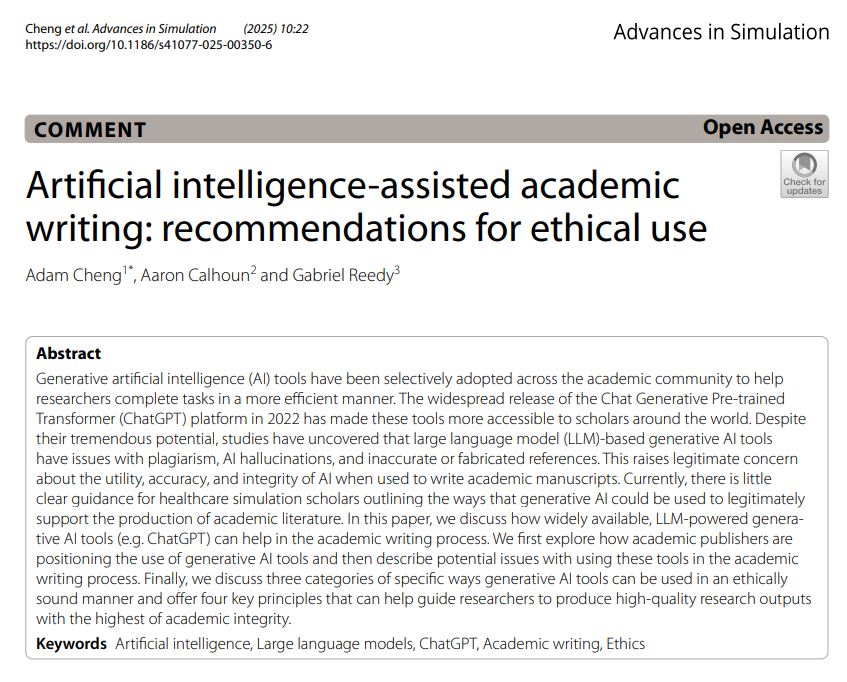
Artificial intelligence-assisted academic writing: recommendations for ethical use
Autor: Adam Cheng, Aaron Calhoun, Gabriel Reedy Editor: Advances in Simulation Publicada: 27 septiembre, 2025 ISBN: 2059-0628 Páginas: 9 Idioma: Inglés More DetailsGenerative artificial intelligence (AI) tools have been selectively adopted across the academic community to help researchers complete tasks in a more efficient manner. The widespread release of the Chat Generative Pre-trained Transformer (ChatGPT) platform in 2022 has made these tools more accessible to scholars around the world. Despite their tremendous potential, studies have uncovered that large language model (LLM)-based generative AI tools have issues with plagiarism, AI hallucinations, and inaccurate or fabricated references. This raises legitimate concern about the utility, accuracy, and integrity of AI when used to write academic manuscripts. Currently, there is little clear guidance for healthcare simulation scholars outlining the ways that generative AI could be used to legitimately support the production of academic literature. In this paper, we discuss how widely available, LLM-powered generative AI tools (e.g. ChatGPT) can help in the academic writing process. We first explore how academic publishers are positioning the use of generative AI tools and then describe potential issues with using these tools in the academic writing process. Finally, we discuss three categories of specific ways generative AI tools can be used in an ethically sound manner and offer four key principles that can help guide researchers to produce high-quality research outputs with the highest of academic integrity. Keywords Artificial intelligence, Large language models, ChatGPT, Academic writing, Ethics
Volver